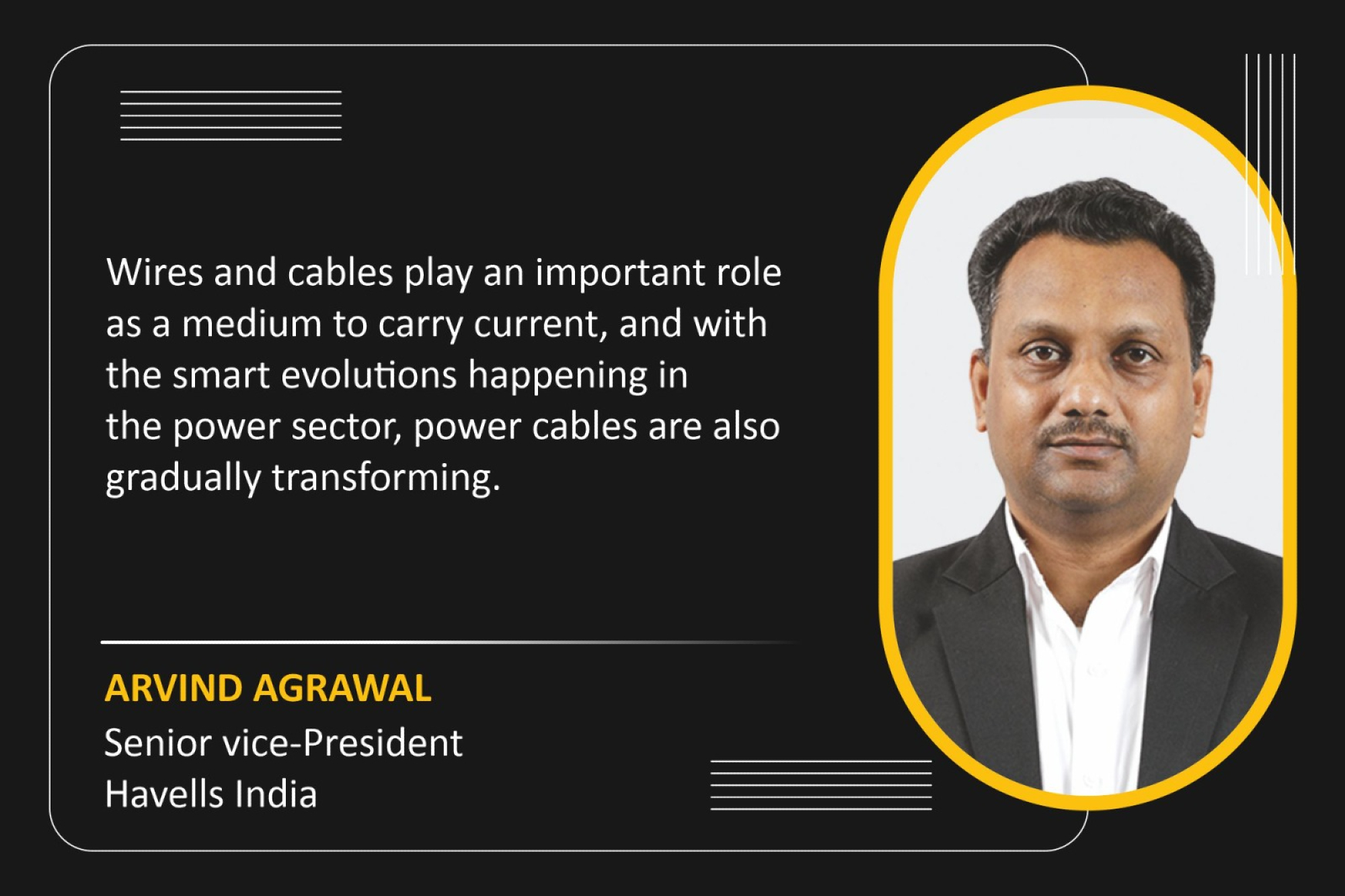New-age HR-FR, FRLS-H, and HFFR wires designed for a safer world
By EPR Magazine Editorial November 14, 2024 1:01 pm IST
By EPR Magazine Editorial November 14, 2024 1:01 pm IST

Leveraging advanced technologies like automation and digitalisation can enhance operational efficiency, reduce costs, and improve production agility.
The wire and cable industry is undergoing a significant transformation driven by technological advancements. This includes increasing safety standards and a growing focus on sustainability in response to the renewable energy revolution. Arvind Agrawal highlights the sector advancements in talks with EPR Magazine.
How are eco-friendly cables transforming safety standards in renewable energy systems?
Wires and cables play an important role as a medium to carry current, and with the smart evolutions happening in the power sector, power cables are also gradually transforming. With renewable power gaining momentum, the types of cables being used are also seeing changes in terms of RoHS-compliant material used in their production.
The new-age HR-FR (Heat Resistant Flame Retardant), FRLS-H (Flame Retardant Low Smoke and Halogen), and HFFR (Halogen Free Flame Retardant) wires are specifically designed to maximise safety while minimising negative environmental implications. For instance, more wires are being manufactured with zero lead, which is known to have harmful environmental effects. Similarly, cables are being developed without materials like halogen to prevent the emission of harmful gases or soil contamination.
How can cable manufacturers remain competitive amidst changing regulations and market shifts?
By adopting a proactive and innovative approach, cable manufacturers can stay competitive amid changing regulations and market shifts. Investing in research and development to create high-quality, sustainable, and compliant products is crucial. Manufacturers can ensure their products meet regulatory and consumer expectations by aligning with evolving environmental standards and energy efficiency norms. Additionally, leveraging advanced technologies like automation and digitalisation can enhance operational efficiency, reduce costs, and improve production agility. Diversifying product offerings and exploring new markets will help manufacturers adapt to market changes, while strong partnerships with suppliers and channel partners will provide a resilient supply chain. Staying informed about regulatory updates and fostering a culture of continuous improvement will enable cable manufacturers to navigate market challenges and seize growth opportunities.How do advanced technologies improve cable safety and infrastructure reliability?
Investing in the safety and reliability of cables is vital for enhancing infrastructure resilience. With advanced technology integration, cables can be manufactured using high-quality materials and innovative designs, ensuring durability and reducing the risk of failures. Improved insulation and protective measures mitigate environmental risks, such as extreme weather and physical damages, thus increasing cable lifespan. Enhanced monitoring systems provide real-time data, enabling proactive maintenance and timely interventions to prevent major issues. Compliance with the latest safety standards protects infrastructure from hazards like electrical fires. Additionally, investments in workforce training and skill development ensure the proper installation and maintenance of cables. Overall, these measures lead to a more reliable, safe, and efficient network, supporting the seamless functioning of essential services and contributing to our populations’ overall safety and well-being.
What are the key drivers for growth in India’s wire and cable industry?
The future of the wire and cable industry in India looks exceptionally bright, fuelled by rapid economic growth, urbanisation, and significant investments in infrastructure and energy sectors. With ambitious electrification projects by the government, such as the Smart Cities Mission and initiatives to boost renewable energy capacity, there is a substantial increase in demand for reliable and high-quality wires and cables. Additionally, expanding the telecommunications network to support the country’s digitalisation efforts is expected to drive the industry’s growth further. The push towards enhancing power distribution networks and upgrading old electrical systems in buildings across urban and rural areas also presents significant opportunities for the sector. Overall, India’s wire and cable industry is poised for sustained growth, backed by strong governmental support and increasing consumer demand for energy efficiency and safety.
We use cookies to personalize your experience. By continuing to visit this website you agree to our Terms & Conditions, Privacy Policy and Cookie Policy.